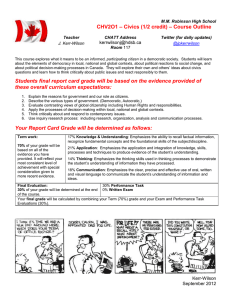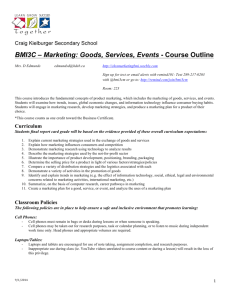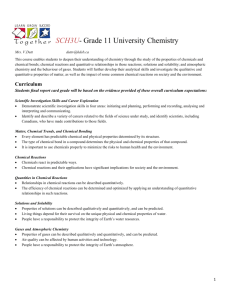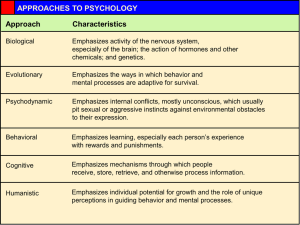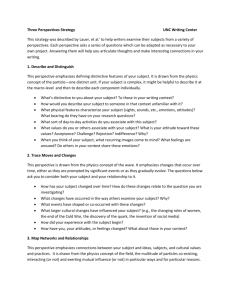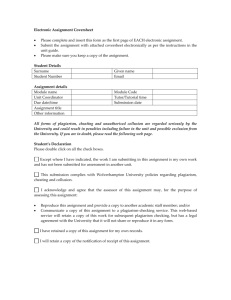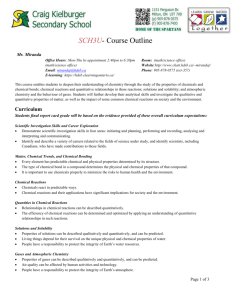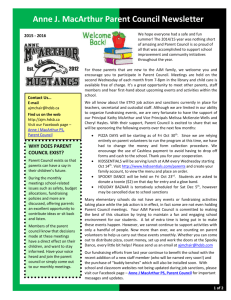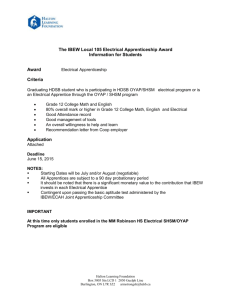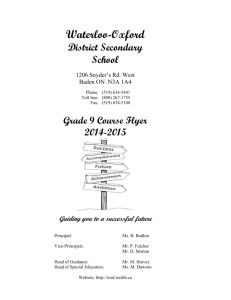Robert Bateman High School Computer Engineering Technology
advertisement
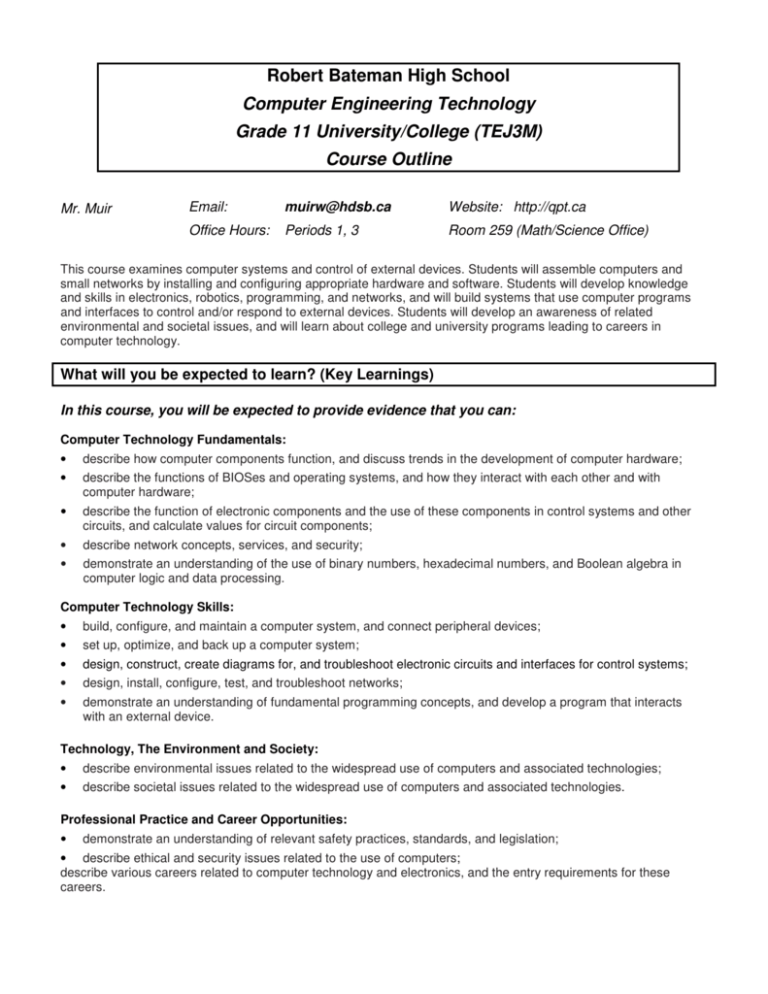
Robert Bateman High School Computer Engineering Technology Grade 11 University/College (TEJ3M) Course Outline Mr. Muir Email: muirw@hdsb.ca Website: http://qpt.ca Office Hours: Periods 1, 3 Room 259 (Math/Science Office) This course examines computer systems and control of external devices. Students will assemble computers and small networks by installing and configuring appropriate hardware and software. Students will develop knowledge and skills in electronics, robotics, programming, and networks, and will build systems that use computer programs and interfaces to control and/or respond to external devices. Students will develop an awareness of related environmental and societal issues, and will learn about college and university programs leading to careers in computer technology. What will you be expected to learn? (Key Learnings) In this course, you will be expected to provide evidence that you can: Computer Technology Fundamentals: • describe how computer components function, and discuss trends in the development of computer hardware; • describe the functions of BIOSes and operating systems, and how they interact with each other and with computer hardware; • describe the function of electronic components and the use of these components in control systems and other circuits, and calculate values for circuit components; • describe network concepts, services, and security; • demonstrate an understanding of the use of binary numbers, hexadecimal numbers, and Boolean algebra in computer logic and data processing. Computer Technology Skills: • build, configure, and maintain a computer system, and connect peripheral devices; • set up, optimize, and back up a computer system; • design, construct, create diagrams for, and troubleshoot electronic circuits and interfaces for control systems; • design, install, configure, test, and troubleshoot networks; • demonstrate an understanding of fundamental programming concepts, and develop a program that interacts with an external device. Technology, The Environment and Society: • describe environmental issues related to the widespread use of computers and associated technologies; • describe societal issues related to the widespread use of computers and associated technologies. Professional Practice and Career Opportunities: • demonstrate an understanding of relevant safety practices, standards, and legislation; • describe ethical and security issues related to the use of computers; describe various careers related to computer technology and electronics, and the entry requirements for these careers. Your Report Card Grade will be determined as follows: Term Work 20% - Knowledge & Understanding 70% of your grade will be based on all of the evidence you have provided. It will reflect your most consistent level of achievement with special consideration given to more recent evidence. Emphasizes the ability to recall factual information, recognize fundamental concepts and the foundational skills of the subject/discipline. 25% - Application Emphasizes the application and integration of knowledge, skills, processes and techniques to produce evidence of the student’s understanding. 15% - Thinking Emphasizes the thinking skills used in thinking processes to demonstrate the student’s understanding of information they have processed. 10% - Communication Emphasizes the clear, precise and effective use of oral, written and visual language to communicate the student’s understanding of information and ideas. Final Evaluation 15% - Performance Task 30% of your grade will be determined at the end of the course. 15% - Written Exam Your final grade will be calculated by combining your Term (70%) grade and your Exam and Performance Task Evaluations (30%). Academic Standards It is your responsibility to provide evidence of your learning within established timelines. Due dates for assignments and the scheduling of tests will be communicated well in advance to allow you to schedule your time. If you aren’t going to be able to follow an agreed upon timeline you should demonstrate your responsibility and organizational skills by discussing with your teacher the challenges you’re facing as far in advance of the deadline as possible. It is your responsibility to be academically honest in all aspects of your schoolwork so that the marks you receive are a true reflection of your achievement. Plagiarism is using the words, ideas or work of someone else without giving appropriate credit to the original creator. This is a form of cheating. Consequences for not meeting these academic standards may include: • • • • • • Reporting the issue to your parents; Requiring you to complete the original or alternative work after school or during your lunch hour; Requiring you to complete an alternative assignment; Suspension; Assigning a “zero” for an assignment not completed prior to an agreed upon closure date; Mark deduction of 5% / day. NOTE: the complete HDSB policies and administrative procedures for “Lates and Missed Assignments” and “Cheating and Plagiarism” policies may be found at www.hdsb.ca Academic Standards These learning skills and work habits will be taught, a assessed ssessed and evaluated throughout the course.
